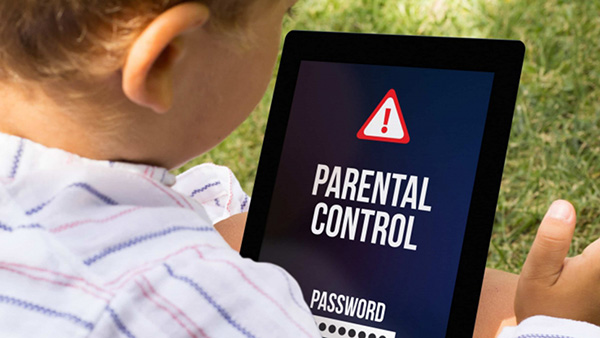
The global pandemic has had a lot of families stuck at home. The likelihood is your children are spending more time online than ever before. Children are using the internet to communicate with family and friends, playing video games and engage in virtual learning. The positive side of being connected online is it reduces the impact this pandemic has had on your children’s lives. But it also avails a new set of challenges for every parents. Parents are asking themselves “How can we reap the benefits of what the internet has to offer will reducing the possible harm?” It’s a difficult balance to strike.
1. Openly engage with your children on online activity
Open communication is one of the fundamental building blocks of a healthy relationship with your children. As soon as your child starts accessing the internet engage with them about what content they are reading, watching and who they are communicating with. The open nature of your conversations will allow you to discuss what sites your children visit or apps they use. Keeping a record of these sites and have a discussion on the appropriate nature of the sites and apps as well as the time the use engaging with them. Listen to your children and come to an agreement on what is right for your family and their individual well being. Doing this early in your children’s online life will build the fundamental building block on their online identity and conduct in the future.
2. Engage with the parental controls function
An innocent online search can result in not so innocent results. Make sure your children’s devices run the latest software and antivirus programs and that their privacy settings are on. They turning on of features such as SafeSearch filters help prevent children from accessing or viewing violence or sexual content as well as minimize unauthorized data collection. Parents can also keep webcams covered when not in use. Children should not share their images or full names online. It’s essential to teach your children on the value of their privacy and its crucial role in keeping them safe. As a parent feel free to research on paid security tools that can offer additional protection and control.
3. Participate in your children’s online activity
Create opportunities for your child to have safe and positive online interactions with friends, family and you. Connecting with others is more important than ever at the moment and this can be an excellent opportunity for you to model kindness and empathy in your children’s online engagements. Get to know your children’s online friends. Make sure you become friends and contacts within your child’s social media circles and ensure you monitor posts. Your children may resist but tell them that is one of the conditions for you to allow them access. Promote and monitor good behavior online and on video calls. Encourage your children to be kind and respectful to classmates, to be mindful of what clothes they wear and to avoid joining video calls from a bedroom.
4. Don’t interfere with their fun
Don’t be the wet blanket to their online fun. Engaging in online video games, social media chats and entertainment content shouldn’t have you be a negative force in the home. Encourage them to use digital content that has them engaging their minds and body in positive ways. Video games that ask for physical movement and mental tasks are great. Being a positive player in your children’s lives allows you to also emphasis to them that balance in life is crucial.
5. Monitor their online time
It’s crucial to monitor your child’s online time as well as their overall screen time. It is advised for children between the ages of 5 and 17 years to have no more than 2 hours of screen time. The management of screen time and time online can be agreed with your children. The aim is to ensure the balance in your child’s life is ensured. The balance between online activity and offline interactions are crucial to the development of your children.
6. Be ahead of the ball, Lead by example
Don’t be a parent afraid of the internet and technology in general. Get familiar with websites, apps, digital protection tools and emerging trends. A parent needs to focus on being a crucial player in their children’s lives in an ever changing world. Thrust yourself in your child’s life, play the video games alongside them, discuss the online topic of the day with them. You cannot afford to recede from their lives.
Lead by example and always model the kind of positive online behavior you would like your children to use. If they see you being cautious and respectable when you are online, they are more likely to follow in your footsteps. And, yes, this includes limiting your own screen time.
